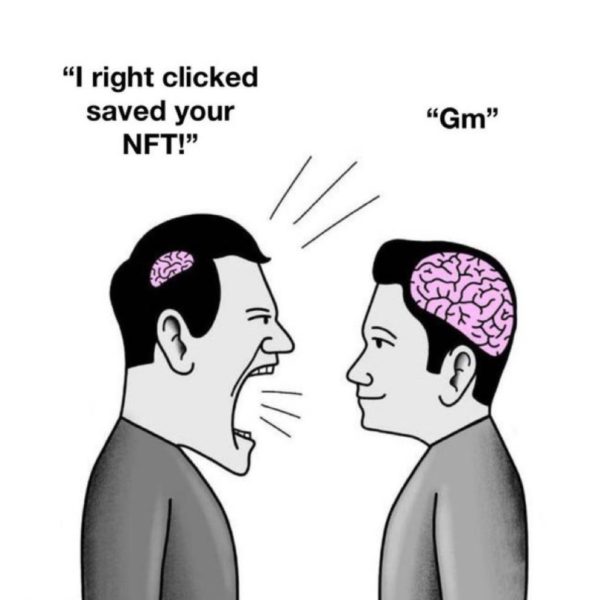September 25, 2023 by Diana Ambolis

Non-Fungible Tokens (NFTs) have taken the digital world by storm, offering a revolutionary way for artists, creators, and collectors to engage with digital assets. While NFTs have created tremendous opportunities, they have also raised questions about their long-term value and sustainability. As an NFT creator or collector, it’s essential to consider how to ensure that your NFTs stand the test of time. In this article, we will explore key factors to assess the longevity of NFTs in the ever-evolving digital landscape.
Key factors to assess the longevity of NFTs
- Concept and CreativityThe foundation of any enduring NFT is a compelling concept and creative content. Ask yourself whether your NFT possesses a unique and timeless idea that will continue to resonate with audiences. Great NFTs often tell a story, convey a message, or evoke emotions that transcend current trends.
- Quality of ArtistryHigh-quality artistry is a hallmark of NFTs that stand the test of time. Invest in producing or acquiring NFTs with exceptional craftsmanship, whether it’s in the form of digital art, music, video, or any other medium. Meticulous attention to detail and artistic skill can elevate an NFT’s long-term appeal.
- Scarcity and RarityScarcity adds value to NFTs. Limited editions or unique one-of-a-kind pieces tend to hold their worth better over time. Consider how rare your NFT is within its collection or series. Rarity often drives demand and long-term appreciation.
- Utility and InteractivityNFTs with utility and interactivity have greater potential to endure. Some NFTs offer access to exclusive content, experiences, or even governance rights within decentralized communities. These additional features can enhance an NFT’s long-term value proposition.
- Artist Reputation and LegacyThe reputation and legacy of the NFT creator can significantly influence an NFT’s longevity. Established artists and creators with a track record of producing valuable and influential work are more likely to create NFTs that withstand the test of time.
- Blockchain and TechnologyThe underlying blockchain technology also plays a crucial role in the longevity of NFTs. Consider the blockchain’s security, scalability, and sustainability. NFTs built on robust and well-established blockchains are generally more reliable over the long run.
- Community and EngagementActive and engaged communities can contribute to the long-term success of NFT projects. Communities often drive interest, support, and participation, which can sustain an NFT’s relevance. Engage with your audience and foster a sense of belonging within your NFT community.
- Legal and Ownership RightsEnsure that the legal aspects of NFT ownership are clear and well-documented. Smart contracts and blockchain technology can provide transparent and immutable proof of ownership. A well-defined legal framework can protect NFT ownership rights and value.
- Market Trends and EvolutionKeep an eye on market trends and the evolution of NFTs. The digital landscape is dynamic, and staying informed about emerging technologies and shifting preferences can help you adapt and ensure your NFTs remain relevant.
- Long-Term PreservationConsider how you will preserve and store your NFTs for the long term. Digital asset management, secure storage, and backup strategies are essential to safeguard the integrity of your NFTs over time.
 Why do NFTs become worthless?
Why do NFTs become worthless?
- Lack of Demand: The primary driver of an NFT’s value is demand. If there is no demand for a particular NFT, its value can plummet. This lack of interest can be due to changing trends, shifts in the market, or simply a lack of continued interest in the content or concept associated with the NFT.
- Oversaturation: The NFT market has seen explosive growth, resulting in a saturation of digital assets. With an overwhelming number of NFTs available, it becomes challenging for individual tokens to stand out and maintain value. Oversaturation can lead to price depreciation.
- Changing Trends: Trends in the NFT space, as well as in the broader art and entertainment industries, can change rapidly. What is popular today may not have the same appeal in the future. NFTs tied to outdated trends or concepts can lose value as they become less relevant.
- Poor Quality: NFTs that lack artistic or creative quality may not hold value over time. High-quality and unique content tends to fare better in the market. NFTs with subpar artwork or concepts may not attract collectors or investors.
- Copyright and Licensing Issues: Legal concerns can arise if an NFT infringes on copyright or licensing agreements. If the original creator or rights holder takes legal action, it can lead to the devaluation or removal of the NFT from platforms, rendering it worthless.
- Smart Contract Vulnerabilities: Smart contracts are used to create and manage NFTs. If there are vulnerabilities or coding errors in the smart contract, it can result in the loss or manipulation of the NFT, impacting its value and trustworthiness.
- Platform Shutdown: NFT marketplaces and platforms may not always remain operational. If the platform hosting an NFT shuts down or experiences technical issues, it can make the NFT inaccessible and, in some cases, worthless.
- Hype and Speculation: Some NFTs experience significant price spikes driven by hype and speculative trading. When the hype fades, the value of these NFTs can plummet, leaving investors with assets that are worth far less than they paid.
- Market Manipulation: Market manipulation can artificially inflate or deflate the value of NFTs. Pump-and-dump schemes and price manipulation tactics can lead to rapid value fluctuations, leaving unsuspecting buyers with worthless tokens.
- Economic Factors: Economic downturns or macroeconomic events can affect the NFT market, just as they can impact traditional financial markets. Economic instability can lead to reduced demand for NFTs and a decline in their value.
- Loss of Community Interest: NFT communities play a vital role in supporting and promoting specific tokens. If the community loses interest or support, it can contribute to the depreciation of NFT value.
- Technological Obsolescence: Advancements in blockchain technology may render older NFTs incompatible or less functional. NFTs built on outdated technology may lose utility and value over time.
Aped some $RAKE
After stake the biggest gambling site was hacked I can see them doing good marketing riding on it, anyway currently they have crash game via telegram which is insane, I heard they working on mine game as well, fresh launch, jeets slowly gets rekt.…
— Mduz (@Mduz_NFT) September 12, 2023
Conclusion
NFTs can become worthless due to a combination of factors, including changing demand, oversaturation, trends, quality, legal issues, technical vulnerabilities, platform-related problems, market manipulation, economic factors, community interest, and technological obsolescence. It’s essential for NFT creators and collectors to assess these factors and make informed decisions to minimize the risk of their NFTs losing value. Additionally, understanding the inherent volatility and speculative nature of the NFT market is crucial for participants in this space.
Also, read – Will AI Kill The Value Of NFT artists? Or Will AI Be The Saviour Of NFT World?
As the NFT ecosystem continues to evolve, the longevity of NFTs depends on a combination of creativity, quality, utility, technology, and community engagement. By carefully considering these factors and making informed decisions, NFT creators and collectors can increase the chances that their NFTs will stand the test of time, continuing to hold value and relevance in the ever-changing digital landscape. Remember that the NFT market is still relatively young, and its full potential is yet to be realized, making it an exciting space for creators and collectors alike.


